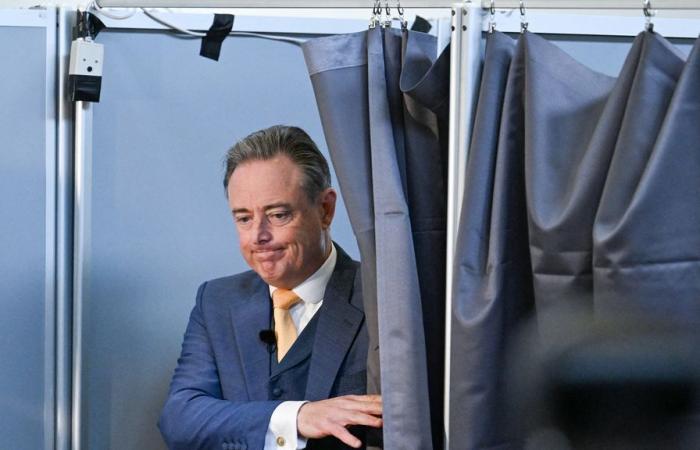NOS News•today, 12:13
In Belgium, voters can go to the polls today for the municipal elections and the provincial council elections. In Flanders, the Dutch-speaking part of Belgium, attendance is not compulsory for the first time. This still applies in Brussels and Wallonia. Things are still getting exciting in Antwerp, the largest municipality in Flanders. Either the right-wing nationalist N-VA or the Marxist PVDA will soon win there.
From these elections, the candidate of the largest coalition with the most preferential votes will automatically become mayor. Previously, this was done via an internal process at municipalities.
In major Flemish cities, lower attendance is expected than before due to the abolition of compulsory attendance. In the morning it was still quite quiet at the polling stations. In the previous local elections, the final turnout was around 90 percent, experts expect the turnout to drop to somewhere between 70 and 80 percent.
Earlier this year there were already elections at national, federal and European level. National politicians who made big gains there – or not – can also stand for election in local elections.
De Wever vs. D’Haese
Bart de Wever, party leader of the N-VA, has been mayor of Antwerp and candidate prime minister for eleven years after his party won the parliamentary elections in June. Then he was tasked to form a new government. He was unable to do that this summer, because the forming parties could not agree on taxes. The negotiations were then put on hold until after today’s elections.
In June, the far-left PVDA received a large share of the votes in his city, more than 20 percent of Antwerp residents voted for the party. Belgian media speak of ‘a battle for the city’ between De Wever and the young leader of the PVDA, Jos D’Haese. The two argue fiercely against each other during debates and other media moments.
With his campaign, D’Haese is particularly able to appeal to young people and Muslims in the city. The PVDA, among other things, speaks out against a ban on headscarves, against a ban on ritual slaughter without stunning and “demands immediate and unconditional recognition of Palestine”.
Things can also get exciting in some other places in Belgium. For example in Wallonia, where the socialist party (PS) may also have to endure local blows. In Ninove, a mayor from the extreme right-wing Vlaams Belang can be elected for the first time.
It is difficult to say anything about broader trends and expectations, explains Lonne van Erp, political reporter for VRT, on NPO Radio 1. “Exactly the same parties emerge in almost no municipality. As reporters, we mainly look at the cordon sanitary, and whether it will be broken.”
The cordon sanitary in Belgium is the pact between parties against the radical right-wing Vlaams Belang, in which they agree not to enter into cooperation or coalition with the party. “Vlaams Belang did very well in June. If they also do that at a local level, other parties may be inclined to work together with the party,” said Van Erp.






